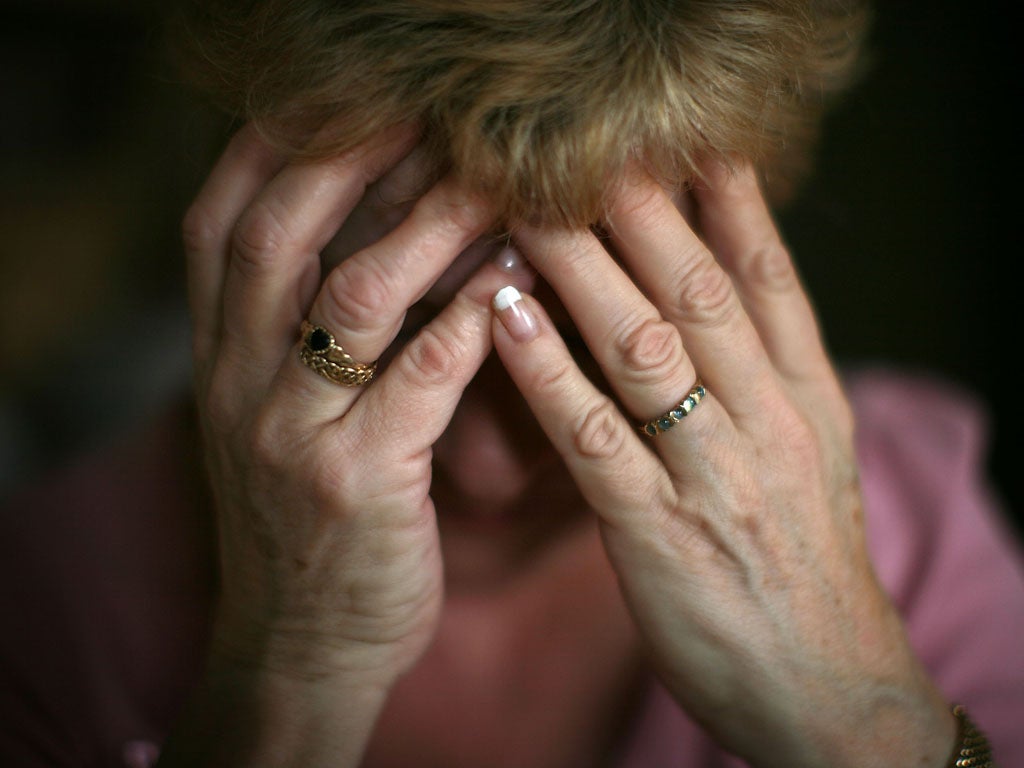Your support helps us to tell the story
From reproductive rights to climate change to Big Tech, The Independent is on the ground when the story is developing. Whether it's investigating the financials of Elon Musk's pro-Trump PAC or producing our latest documentary, 'The A Word', which shines a light on the American women fighting for reproductive rights, we know how important it is to parse out the facts from the messaging.
At such a critical moment in US history, we need reporters on the ground. Your donation allows us to keep sending journalists to speak to both sides of the story.
The Independent is trusted by Americans across the entire political spectrum. And unlike many other quality news outlets, we choose not to lock Americans out of our reporting and analysis with paywalls. We believe quality journalism should be available to everyone, paid for by those who can afford it.
Your support makes all the difference.How would you feel if your beloved father developed dementia and the local council wanted to sell his house – which you live in – and family heirlooms to fund his care? Last weekend, we read that a judge in the Court of Protection ruled in just such a case and decided that a local authority could do exactly that. Essex County Council was given permission to sell a pensioner’s assets – including a Lucien Pissarro painting – to help to pay for his care in a home.
It was an issue which could affect any of us – a matter of undoubted public interest. Yet under the rules of the Court of Protection – a branch of the court system that deals with cases involving people without the mental ability to make decisions for themselves, and which is thus extremely sensitive to the need to protect the privacy of those whose affairs it handles – we might never have known about it. The CoP has long operated behind closed doors, and for the past four years The Independent has campaigned to open its proceedings up to public scrutiny.
District Judge Anselm Eldergill’s decision to allow the case, and the name of Essex County Council, to be reported brings a rare but welcome burst of sunlight into what is often depicted as the twilight world of the Court of Protection. But there is much further to go.
The CoP’s rules stipulate that hearings are generally in private, excluding both press and public – the reverse of the principle of open justice which applies in almost all other courts. The work of The Independent, supported by other media companies, has meant that we have won permission to attend and report a number of these otherwise closed hearings.
Sir James Munby, the president of the Family Division and head of Family Justice, has just issued draft guidance to increase transparency in both family courts and the Court of Protection – to help to ensure that their judgments are more widely publicised, and that local authorities and expert witnesses are not routinely anonymised.
Nonetheless, the reality remains that the press is severely hampered in carrying out its role as the public’s watchdog, often because of the large amounts of money needed to instruct Counsel to try to win access to these courts. The solution is for journalists to have the automatic right to attend CoP hearings. If the CoP rules changed so that the media was able to work together with judges on what can be published while safeguarding the interests of vulnerable people, the case of the pensioner and the Pissarro will have marked an important staging post.
Mike Dodd is a journalist and media law specialist, and the co-author of the 21st edition of “McNae’s Essential Law for Journalists”

Join our commenting forum
Join thought-provoking conversations, follow other Independent readers and see their replies
Comments